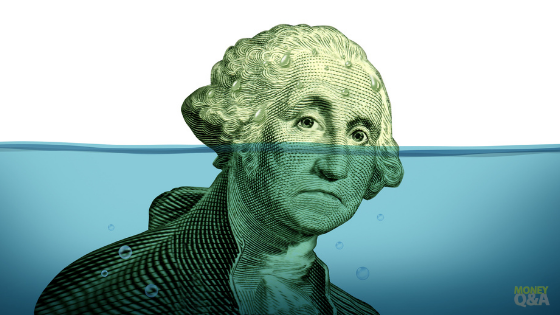Making bad financial decisions can have a massive impact on your life in both the here and now and the future. There is a debate over how beneficial it would be to teach our children about finances and taxes before leaving school. And whatever your opinion in this is, teaching children and young adults how to avoid making bad money decisions is vital to allow them to reach a level of financial security throughout their adult life.

Can you teach good money habits?
Of course, you can always teach people the best ways to manage their money, how to file taxes, save for their 401K, and more. Still, much like the nature v nurture debate, there will always be people who are predisposed to make bad financial decisions no matter how much information they have to enable them to avoid financial pitfalls.
Of course, the people understand about finances and how history can play a part in the world around us when it comes to money; a Financial Planning Book can enlighten you more, and how different factors can affect income savings and investments during your life.
Indeed it is more than just being good with money and knowing your financial limitations; understanding the world of financial risk and government spending, for example, can help you enhance your portfolio and make better decisions.
Avoiding Bad Financial Decisions.
It is a strong person who can avoid making more emotional and behavioral financial decisions. Those who spent with their heart over their head can potentially be more at risk for making bad financial decisions than those who approach the same issue with a more clinical way of thinking. But that isn’t always the only downfall, and making bad decisions can sometimes be down to pure look and the throw of a coin, even after analyzing all the options and making an informed decision.
Creating a checklist before making any major or even minor financial decisions can help you avoid those dreaded impulse choices and give you more time to contemplate what you are about to do or are considering doing.
- Establish the particulars – are you locked into a payment term or have the flexibility to change your mind once you have made the decision. Exploring the expected deliverables and your options once you go ahead will enlighten you as to if this is a decision you should be making.
- What is the risk? – what is the worst-case scenario should things go worn? Are you risking everything, or can you come out of this unscathed? It may be that the risk is worth it and your losses are manageable.
- Can you follow through? – Knowing yourself and your previous behavior regarding decisions like this can help you ascertain what you are likely to do once you have followed through on your decision.
- Are you approaching it correctly – there is something to be said for letting your heart decide over your head. There is a time and a place for being clinical – for example, choosing to buy the new sports car or not over buying a house for the right reasons.
What if The Worst Happens?
Knowing what will happen should the worst happen, let’s say you default on your mortgage payments, can you really come back from the effects of this bad financial decision? For some, seeing things on the more optimistic side of life will make them feel better about what they are about to do.
Rebuilding credit will be hard and will take time, but it can be done; signing on the dotted line for a top of the one sports car only to write it off after driving off the forecourt can mean a long time paying for your mistake and going without a new car until you are in a better position financially to afford a new car.
Only you can really know if the worst thing that can happen if you commit to a financial decision that goes wrong is worth it. By taking the time, allow both your head and heart to contemplate the decision and ask yourself if you are confident you can meet the commitments this requires of you and how saying no will affect your life.
Others can advise you and steer you clear of known bad mistakes or financial pitfalls and give you an option from the point of view you may not have considered before. But ultimately, avoiding making bad financial decisions is all down to you and whether you are willing to take a calculated risk.
